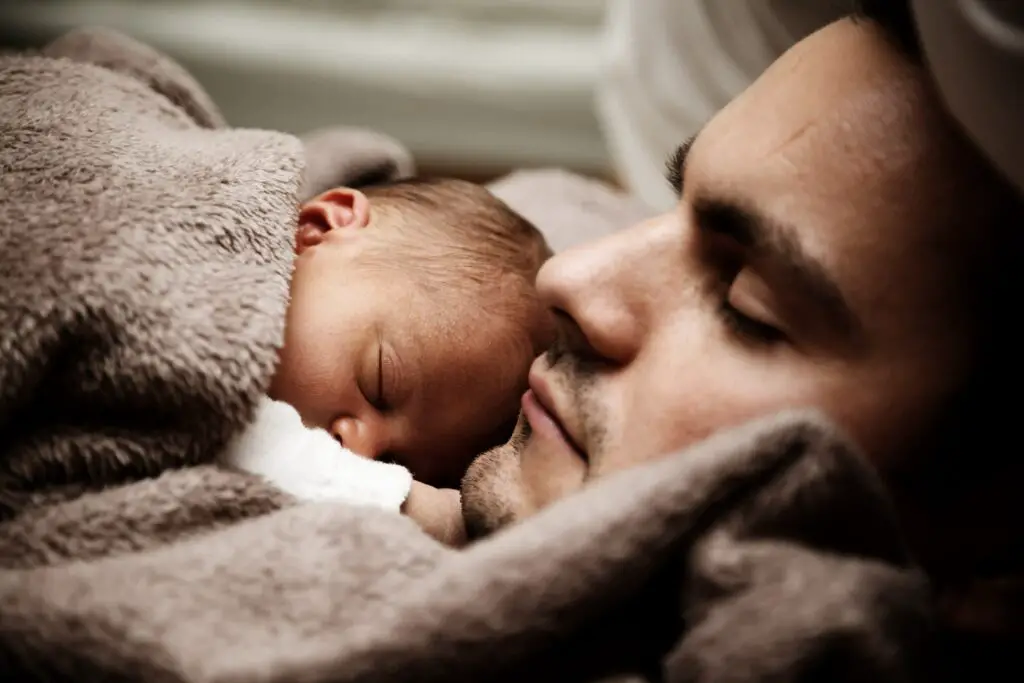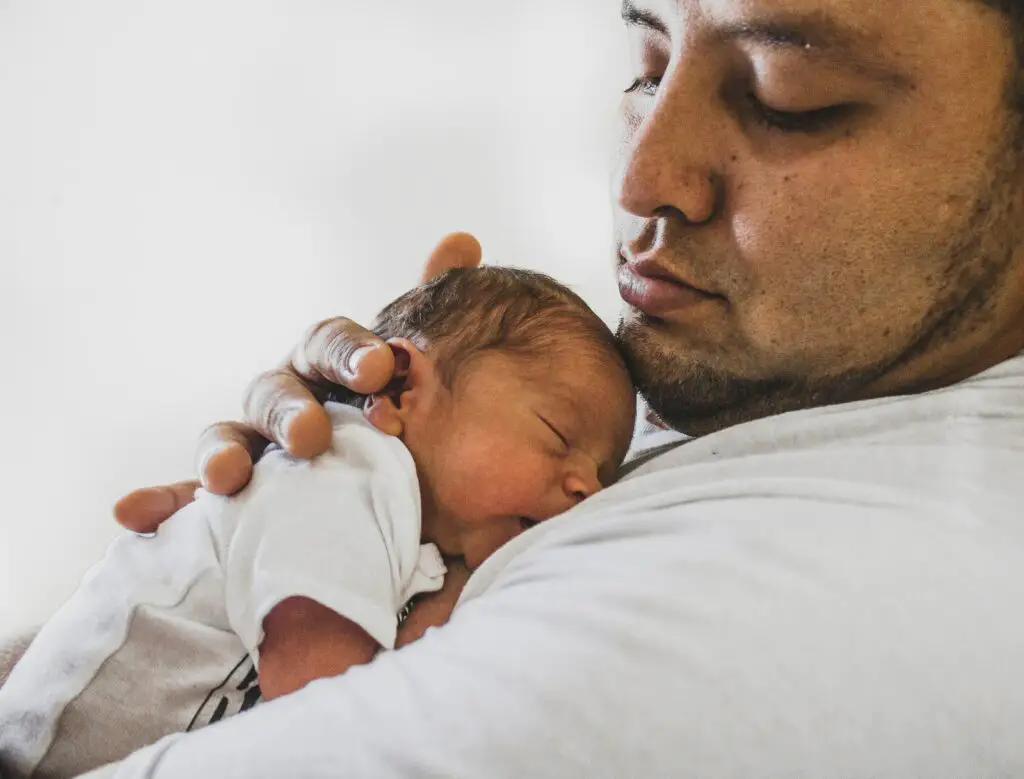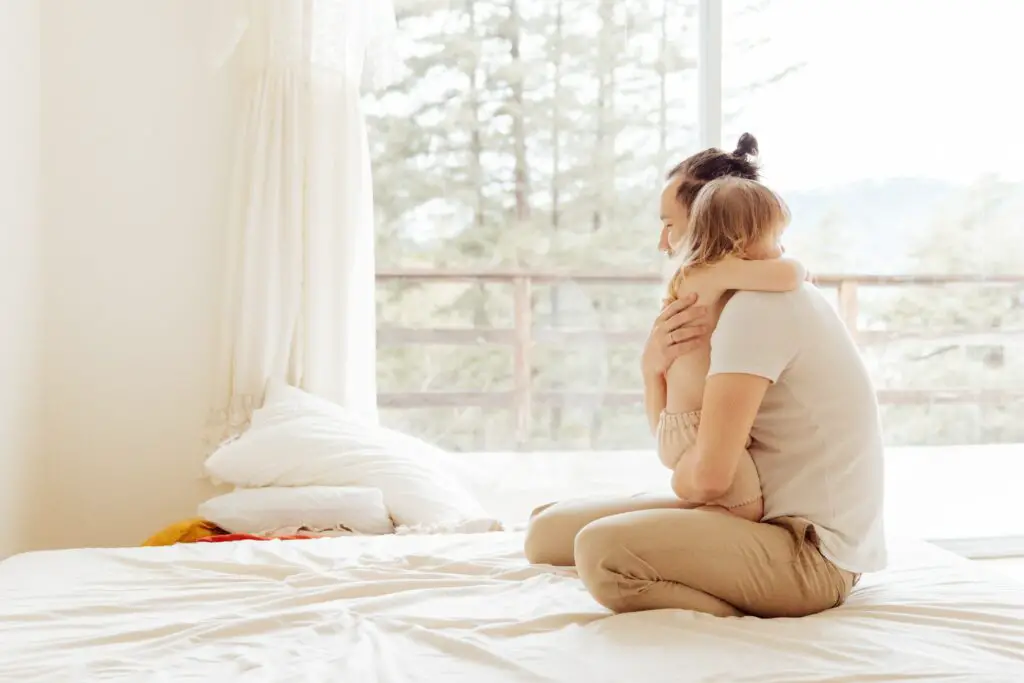Introduction: Understanding Baby Sleep Patterns
As a parent, understanding your baby’s sleep patterns can be a challenging yet crucial task. This knowledge can help you better meet your baby’s needs and ensure their overall well-being. In this section, we will delve into the fascinating world of infant sleep habits.
-
- Overview of Baby Sleep Patterns
Babies, especially newborns, have different sleep patterns compared to adults. They typically sleep in cycles of 50 minutes for the first few months, alternating between rapid eye movement (REM) and non-REM sleep. As they grow older, these cycles gradually lengthen, allowing them to sleep for longer periods. It’s also important to note that babies spend more time in REM sleep, which is essential for their brain development. For more detailed information, you can visit Wikipedia’s page on Sleep in Infants.
-
- Importance of Understanding Infant Sleep Habits
Understanding your baby’s sleep habits is essential for several reasons. Firstly, it allows you to establish a predictable routine, which can help your baby feel secure and aid in their development. Secondly, it can help you identify any potential sleep issues early on, such as sleep apnea or insomnia. Lastly, understanding your baby’s sleep patterns can help you ensure they are getting the right amount of sleep necessary for their growth and development.
In the following sections, we will explore more about the science behind why babies like chest sleep, the benefits and risks associated with it, and practical tips for soothing a sleeping baby. We will also share some real-life experiences of parents to provide you with a more comprehensive understanding of baby sleep patterns.
Why Babies Like Chest Sleep: The Science Behind It

Understanding why babies prefer certain sleep positions, particularly chest sleep, can be fascinating. It’s not just about comfort; there’s a science behind it. Let’s delve into this topic and explore the reasons babies like chest sleep and the scientific explanation of baby’s comfort sleep positions.
-
- Exploring the reasons babies like chest sleep
When a baby sleeps on a parent’s chest, they can hear the soothing rhythm of the parent’s heartbeat and breathing. This familiar sound, which they’ve heard since they were in the womb, can be incredibly comforting. The warmth of the parent’s body also provides a sense of security and safety. This position also allows for skin-to-skin contact, which has been shown to have numerous benefits for babies, including promoting bonding and helping regulate the baby’s body temperature, heart rate, and stress levels. [1]
-
- Scientific explanation of baby’s comfort sleep positions
From a scientific perspective, babies are born with a well-developed sense of touch. This is why they respond so positively to skin-to-skin contact and why they find chest sleep so comforting. The pressure they feel when lying on a parent’s chest can also mimic the pressure they felt in the womb, providing a sense of familiarity and comfort. Additionally, the slight rise and fall of the parent’s chest can have a calming effect, similar to the sensation of being rocked. [2]
In conclusion, the preference of babies for chest sleep is not just about comfort, but also about their innate need for safety, familiarity, and physical contact. However, while chest sleep can be beneficial in many ways, it’s also important to be aware of the potential risks and to always prioritize your baby’s safety.
Benefits of Chest Sleeping for Babies
When it comes to the sleeping habits of babies, chest sleeping has been found to offer numerous benefits. Let’s delve into the physical benefits that chest sleeping can provide for your little one.
Physical Benefits
There are two key physical benefits that chest sleeping can provide for babies. These include:
-
- Improvement in Digestion
One of the significant benefits of chest sleeping is the improvement it brings to a baby’s digestion. When a baby is placed on their stomach, gravity can aid in the digestion process, helping to reduce the occurrence of reflux and discomfort. This position can also help to promote regular bowel movements, contributing to overall digestive health. Wikipedia provides more information on this topic.
-
- Enhancement in Breathing
Another benefit of chest sleeping is that it can enhance a baby’s breathing. When a baby is placed on their chest, their lungs can expand more fully. This position can also help to keep the airways clear, reducing the risk of obstructions and promoting better oxygen flow. This can be particularly beneficial for babies who have respiratory issues or are prone to congestion. More details about this can be found on Wikipedia.
In conclusion, chest sleeping can offer significant physical benefits for babies, including improved digestion and enhanced breathing. However, it’s important to note that while these benefits can be significant, they should be balanced with the need for safe sleep practices. Always consult with a healthcare professional before making any changes to your baby’s sleep routine.
Emotional Benefits
While the physical benefits of chest sleeping for babies are significant, the emotional benefits are equally important. These emotional benefits not only contribute to the overall well-being of the baby but also have a profound impact on the relationship between the parent and the baby.
-
- Strengthening Parent-Baby Bonding
The act of chest sleeping allows for a close and intimate connection between the parent and the baby. This physical closeness can help to strengthen the emotional bond between the two. According to a study from the University of California, San Francisco, skin-to-skin contact, which is a key element of chest sleeping, can enhance parent-infant attachment, making the baby feel loved and secure.
-
- Providing a Sense of Security
For a baby, the parent’s chest is a safe and comforting place. The familiar sounds, such as the parent’s heartbeat and breathing, can provide a sense of security and calmness. This can help to reduce anxiety and stress in the baby, promoting better sleep and overall emotional health. A Pediatrics journal study found that babies who sleep on their parents’ chests cry less and sleep more peacefully than those who sleep alone.
In conclusion, the emotional benefits of chest sleeping for babies are significant. It not only strengthens the bond between the parent and the baby but also provides a sense of security that is crucial for the baby’s emotional development.
Understanding the Risks: Baby Sleep Safety

As parents, we all want our babies to have a safe and sound sleep. However, it is crucial to be aware of the potential risks associated with certain sleep positions, particularly chest sleeping. In this section, we will delve into the risks of chest sleeping and the importance of baby sleep safety.
-
- Identifying potential risks of chest sleeping
Chest sleeping, while comforting for some babies, can pose certain risks. The most significant risk is the possibility of Sudden Infant Death Syndrome (SIDS). According to Wikipedia, SIDS is the unexplained death, usually during sleep, of a seemingly healthy baby less than a year old. When a baby sleeps on their stomach, they may have difficulty breathing, which can increase the risk of SIDS. Additionally, chest sleeping can lead to the development of flat spots on the baby’s head, a condition known as positional plagiocephaly.
-
- Importance of baby sleep safety
Ensuring your baby’s sleep safety is paramount. A safe sleep environment can significantly reduce the risk of SIDS and other sleep-related infant deaths. This includes placing the baby on their back for all sleep times, using a firm sleep surface, keeping soft objects and loose bedding away from the baby’s sleep area, and sharing a room with the baby but not the same sleeping surface.
Understanding these risks and the importance of baby sleep safety is the first step towards ensuring your baby’s well-being. Remember, every baby is unique, and what works for one may not work for another. Therefore, it’s essential to consult with your pediatrician or a sleep specialist to determine the best sleep practices for your baby.
Soothing a Sleeping Baby: Practical Tips
Getting your baby to sleep can sometimes feel like a Herculean task. However, with the right strategies, you can create a soothing environment that encourages restful sleep. Here are two practical tips that can help.
-
- Creating a Comfortable Environment
Creating a comfortable environment is crucial for your baby’s sleep. This involves maintaining a suitable room temperature, which according to Wikipedia, should be around 68-72°F (20-22°C). A too hot or too cold room can disrupt your baby’s sleep.
Also, consider using a crib or bassinet with a firm mattress. The American Academy of Pediatrics recommends this for safe and comfortable baby sleep. Ensure the crib is free from toys, pillows, and blankets to prevent suffocation risks.
Lastly, a dark room can signal to your baby that it’s time to sleep. Consider using blackout curtains or an eye mask to create a dark environment.
-
- Using Soothing Sounds and Movements
Just like adults, babies can be soothed to sleep with calming sounds and movements. White noise machines can mimic the sounds your baby heard in the womb, providing a familiar and soothing backdrop for sleep. You can also try lullabies or soft music.
Gentle movements can also help your baby drift off to sleep. This can include rocking your baby in your arms, a swing, or using a baby hammock. Remember, the key is to make these movements gentle and rhythmic, similar to the movements they felt when they were in the womb.
Every baby is unique, and what works for one might not work for another. It’s all about finding what your baby responds to best and being consistent with it. With patience and practice, you’ll find the right combination that works for your little one.
Case Studies: Real Life Experiences of Parents

Each parent’s journey with their baby is unique and filled with its own set of challenges and triumphs. Here, we share some real-life experiences of parents, particularly focusing on their experiences with babies sleeping on their chests and the lessons they’ve learned along the way.
-
Sharing experiences of parents with babies sleeping on chest
One of the most common experiences shared by parents is the comfort and bonding that comes from having their baby sleep on their chest. For instance, Sarah, a mother of two, shares, “When my firstborn was a few weeks old, he would only settle and sleep when lying on my chest. It was a precious bonding time, but it also made me aware of the need for safety precautions.”
Another parent, James, a father of a six-month-old, recounts, “My daughter loves sleeping on my chest. It’s our special bonding time. But I always make sure I’m awake and alert during these times to ensure her safety.”
-
Lessons learned and advice from experienced parents
Experienced parents often have a wealth of knowledge and advice to share. Here are some of their insights:
- Always prioritize safety: Many parents emphasize the importance of safety when allowing a baby to sleep on the chest. This includes staying awake and alert, and ensuring the baby’s airways are clear.
- Enjoy the bonding time: Parents often cherish these moments of closeness with their babies. As Emma, a mother of three, advises, “Enjoy these moments. They grow up so fast, and before you know it, they’re too big to sleep on your chest.”
- Listen to your baby: Every baby is different. What works for one might not work for another. As experienced parent, Mark, suggests, “Pay attention to your baby’s cues. They’ll let you know what they prefer.”
These real-life experiences and lessons from parents highlight the joys and challenges of parenting. They remind us that while there are general guidelines and scientific insights about baby sleep patterns, each baby is unique and requires a personalized approach.
Conclusion: Embracing the Mystery of Baby Sleep
As we wrap up our discussion on the intriguing subject of baby sleep, it’s important to remember that every baby is unique. Their sleep patterns and preferences can vary greatly. However, understanding the basics of baby sleep and the reasons behind their preferences can make the parenting journey a bit smoother.
-
- Recap of the importance of understanding baby sleep
Understanding your baby’s sleep patterns is crucial for their growth and development. It’s not just about getting them to sleep through the night, but also about ensuring they’re getting quality sleep. This knowledge can help you create a conducive sleep environment, establish a routine, and respond appropriately to their sleep cues. Remember, a well-rested baby is a happy and healthy baby.
-
- Final thoughts on babies sleeping on chest
Babies sleeping on the chest can be a comforting experience for both the parent and the baby. It can foster a strong bond and help soothe a fussy baby. However, it’s essential to be aware of the potential risks and ensure safety measures are in place. Always supervise chest sleeping and avoid it during long sleep periods to prevent SIDS (Sudden Infant Death Syndrome).
In conclusion, embracing the mystery of baby sleep is about finding a balance between understanding the science behind it and respecting your baby’s individual needs. It’s a journey of learning, adapting, and growing together. As parents, our role is to provide a safe, loving, and nurturing environment that allows our little ones to thrive.














